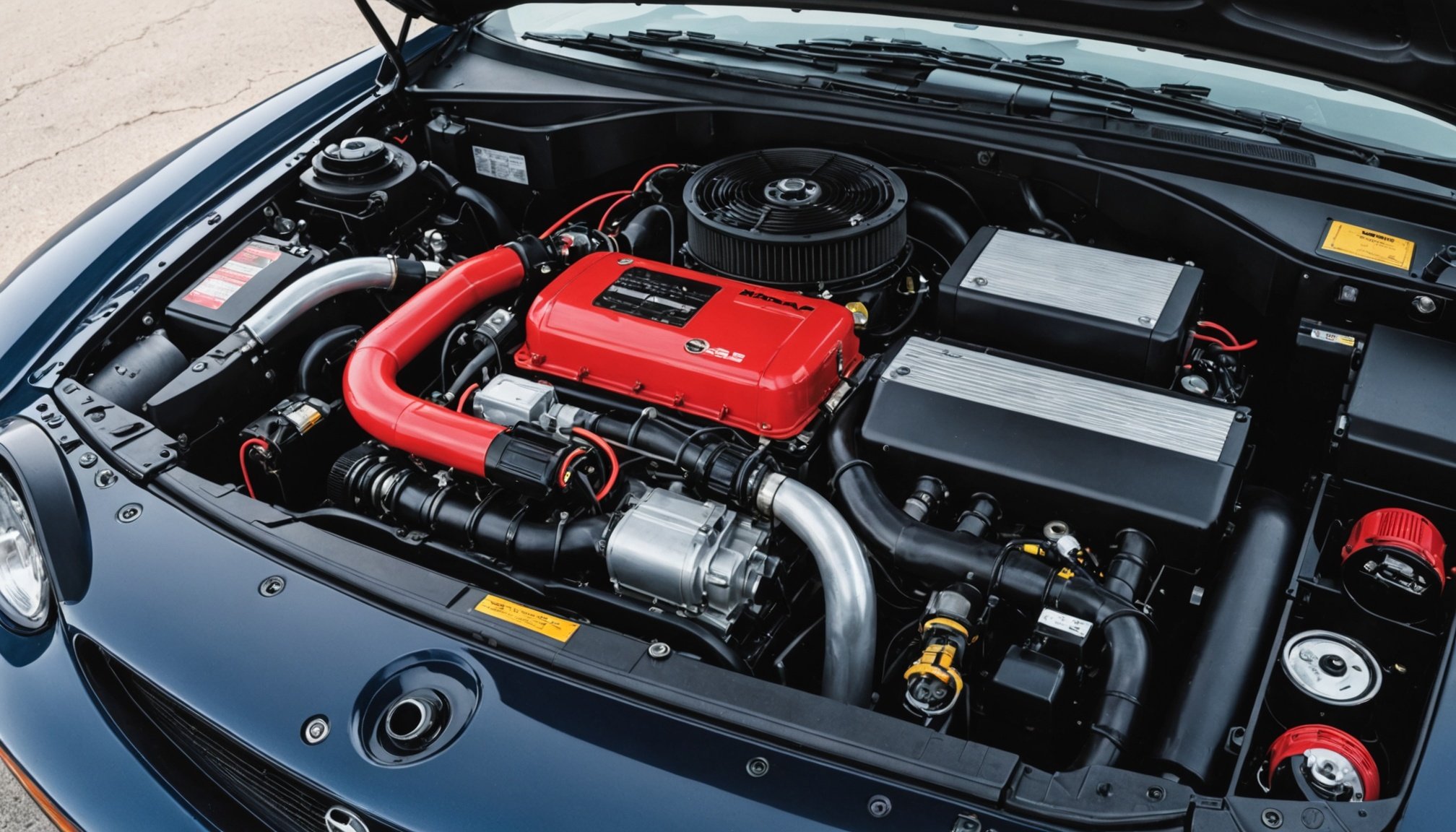Overview of Aftermarket A/C Systems for Mazda Miata
Aftermarket A/C systems provide Mazda Miata owners a way to enjoy their ride with enhanced comfort, particularly during warm months. Key benefits include increased cabin comfort, a feature that might not be standard in older Miata models. The ability to retrofit these systems extends the functional lifespan of your vehicle, preserving its value while providing a more pleasurable driving experience.
When considering aftermarket A/C systems for your Mazda Miata, focus on seeking kits that offer key features like efficient cooling, easy integration with your existing vehicle setup, and durability. Look for systems that include detailed instructions, a warranty for peace of mind, and an efficient compressor. The ease of installation is crucial, as some kits are designed to “bolt-in,” minimising the need for significant modifications.
Also to see : Ultimate guide to choosing the ideal dash cam for your mercedes-benz e-class: key tips and expert insights
When choosing a brand, consider popular options such as Classic Auto Air and Restomod Air. These suppliers offer comprehensive kits that cater to various Miata models, ensuring compatibility and reliability. A detailed comparison of each brand’s offerings will underline differences in performance, price, and warranty—important factors for making an informed decision. Making these comparisons facilitates finding the best fit for your Mazda Miata A/C options, balancing performance with cost-effectiveness.
Tools and Materials Required for Installation
Ensuring you have all the essential installation tools and materials before starting your air conditioning installation is crucial for a seamless process. These tools help the installer work efficiently, reducing potential challenges or delays.
Have you seen this : The definitive handbook for choosing the best all-weather tires for your range rover evoque
Essential Tools for the Installation Process
For a successful installation, gather the following tools:
- Wrench Set: Necessary for tightening and loosening bolts.
- Drill and Drill Bits: Used to make precise holes for mounting.
- Level and Measuring Tape: Ensures the unit is installed straight and secure.
- Screwdrivers: Both flat and Phillips should be in your toolkit.
List of Materials Needed
The materials needed for a/c system installation are pivotal. Key items include:
- Mounting Brackets: For attaching the unit to walls or windows.
- Insulation Sleeve: Prevents energy loss and enhances efficiency.
- Drainage Pipe: Directs condensation safely outside.
- Copper Tubing: Essential for connecting indoor and outdoor units.
Having the right installation tools and materials not only enhances efficiency but is vital for the success and longevity of your air conditioning system. Overlooking necessary items can lead to poor installation and costly future repairs, emphasizing why this step is non-negotiable.
Step-by-Step Installation Process
Installing a new air conditioning system in your vehicle can be daunting. However, with a thorough a/c installation guide, you can confidently manage this process. Let’s explore the step-by-step a/c setup.
Preparation and Safety Precautions
Begin your installation by preparing the workspace and ensuring all safety measures are in place. Clear the vehicle of any obstructions, providing ample room to work. It’s crucial to disconnect the battery to prevent any electrical accidents during the a/c setup. Ensure you have the necessary tools at hand, such as wrenches, screwdrivers, and protective eyewear. This preparation guarantees a smooth and safe installation.
Disassembling the Existing System
Next, focus on disassembling the existing A/C system with precision. Carefully remove any panels or parts concealing the system. Keep note of the screws and parts for reassembly. Use the a/c installation guide as a reference for disconnection points and techniques to avoid any damage to the vehicle.
Installing the New A/C System
With the old system removed, it’s time to install the new one. Begin by securely placing the new condenser and compressor in their respective positions. Follow the manufacturer’s specifications closely to ensure a correct fit. Lastly, carefully connect the electrical components and test the system for efficiency. By adhering to step-by-step a/c setup, you ensure an efficient and satisfactory installation.
Wiring Diagrams and Electrical Considerations
When installing an aftermarket A/C system in a Mazda Miata, understanding the a/c wiring diagram is crucial. The diagram serves as a roadmap for connecting various components, ensuring the system functions correctly. Electrical installation a/c system processes must address both the vehicle’s existing wiring and the new components introduced by the A/C system.
The Mazda Miata requires a specific approach to wiring due to its compact design. Careful planning ensures that no component interferes with the vehicle’s performance. When reviewing these wiring requirements, focus on connections such as the compressor clutch, blower motor, and thermostatic switches. These all play a pivotal role in the A/C system’s effectiveness.
Electrical connections for aftermarket systems can be more complex, often involving the integration of new relays and fuses to power additional components. This prevents overloads and maintains optimum performance. Visual aids, such as diagrams or step-by-step illustrations, can greatly assist during installation, reducing errors and simplifying the process.
For effective installation, it’s vital to keep in mind the proper routing of wires and ensuring all connections are secure. This includes double-checking for proper grounding and avoiding potential points of friction that could wear the wiring over time.
Troubleshooting Common Installation Issues
Installing an air conditioning system can sometimes bring unforeseen challenges. Common installation problems often include electrical connectivity issues, incorrect unit sizing, or insufficient refrigerant levels. These a/c troubleshooting concerns can cause the system to function inefficiently, or not at all.
To tackle these issues, start by verifying electrical connections. Ensure that all wires are properly fitted according to the manufacturer’s specifications to prevent sudden shutdowns or power issues. Incorrect unit sizing is another frequent issue; a unit too small for the designated area will struggle to maintain the desired temperature, while one too large can lead to excessive cycling, cutting short the system’s lifespan. Always refer to the unit’s manual for recommended room sizes.
Insufficient refrigerant levels can also affect performance, leading to poor cooling. Check for leaks and ensure the refrigerant is filled to the levels specified by the manufacturer.
Should these steps not resolve the problem, additional resources are available. Seek professional help or consult online forums dedicated to a/c troubleshooting and explore manufacturer resources for detailed guides. Addressing these common installation problems swiftly ensures your air conditioning system functions seamlessly and prolongs its operational life.
Recommended Products and Where to Buy
For Mazda Miata enthusiasts, selecting the ideal aftermarket A/C system enhances both comfort and driving pleasure. Here are some recommended products:
-
Vintage Air Gen II Mini Kit: Known for its compact design, it fits seamlessly into the Mazda Miata. It’s praised for its efficiency and ease of installation, making it a top choice for many car enthusiasts.
-
Restomod Air Haymaker II: This system combines modern technology with vintage style. It’s highly rated for both performance and aesthetics.
-
Classic Auto Air Perfect Fit Elite Kit: As the name suggests, this kit offers a perfect fit for the Miata, ensuring optimal cooling with minimal modifications. Users appreciate its robust construction and reliability.
Where to Buy A/C Kits
When it comes to purchasing these kits, major automotive retailers and online platforms like eBay and Amazon offer competitive prices and user reviews. These reviews can help you gauge the best aftermarket A/C systems suited for your needs.
Tips for getting the best deals:
- Compare prices across different platforms.
- Look for discounts during sales events.
- Negotiate with sellers, especially on forums or specialty websites, to potentially secure a lower price.
Taking advantage of these strategies can lead to significant savings while ensuring you get a top-quality product.
Maintenance Tips for Your Aftermarket A/C System
Caring for your aftermarket A/C system ensures longevity and optimal performance. Start with regular a/c maintenance as the cornerstone of preventive care. Here are some best practices to follow:
-
Regular Cleaning: Keep the filters, coils, and fins clean. This helps to maintain efficient air circulation and avoid unnecessary strain on the system. Check for dirt and debris buildup at least once a month.
-
Inspect for Refrigerant Leaks: Leaks can severely diminish cooling efficiency, leading to higher energy costs and potential system damage. If you suspect a leak, consult a professional immediately.
-
Check Electrical Connections: Loose or faulty connections can lead to malfunction or complete system failure. Periodically examine and tighten connections to avoid these issues.
Recognising signs that indicate the need for professional service is crucial:
-
Odd Noises: Unusual sounds often suggest mechanical issues requiring expert assessment.
-
Reduced Cooling: If your unit isn’t cooling effectively, it might signal a problem such as low refrigerant levels or a depleted battery.
Seasonal checks are essential for safeguarding performance. During spring, ensure the system is ready for increased summer use. In autumn, verify it’s prepared for reduced activity in winter. Following these guidelines will help guarantee your A/C system’s efficacy year-round.






